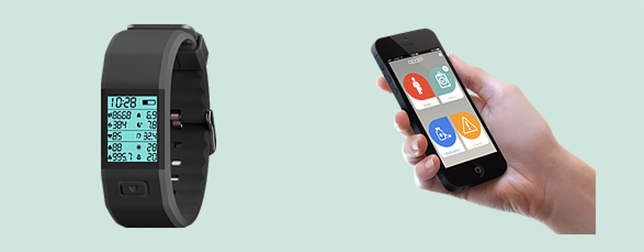Aparito, an award-winning digital health company, announced the launch of its patient-monitoring wearable. Aparito believes the new wearable will save the pharmaceutical industry billions of dollars in clinical trials.
As many as 42% of pediatric clinical trials end up in failure and inconclusive results.
“That means we don’t know one way or the other if a drug works or not,” says Aparito founder Elin Haf Davies.
Davies says this isn’t just a problem for the pharmaceutical companies, but this is also a problem for the patients who pay a mark-up on medication to cover these costs and taxpayers who support healthcare services like the NHS.
Davies founded Aparito in 2015 with hopes of allowing patient data to be captured more precisely, improving the success of clinical testing and the quality of life for patients.
Read more BioSensics Launches Digital Platform for Clinical Trials
This year, the startup raised investment from Europe’s biggest pharmaceutical company, Germany’s Bayer AG, in a round which brings its valuation to £4.5 million ($6 million).
This is How Aparito Works
An app included in Aparito invites patients to input data about their experiences related to the drugs they’re taking. The wearable wristband constantly tracks medical data on health and activity levels.

Davies says that less than 3 percent of patient’s experience is recorded at conventional clinical trials because these mostly happen outside the hospitals. “We’re trying to fill that gap and let researchers know what happens between hospital visits,” she says.
Aparito made its debut this month in Cape Town, South Africa supporting a pediatric epilepsy study. Supported by the Newton Fund and the South African Medical Research Council, the study utilized Aparito’s Atom 5 platform to collect and analyze patient generated data outside of the hospital as part of a treatment optimization and precision medicine initiative.
Read more Imec Develops Novel Organ-on-Chip Device to Improve Drug Screening
Aparito’s wristband can also detect and track subtle external seizures not noticed by others, and the company is inviting parents to use an in-app video tool to record their children’s seizures to inform doctors and decide what medication they should receive.
Aparito will use most of its latest funding towards regulatory approvals and accreditation, allowing the business to focus on sales and scaling.
Davies hopes that her technology will put trust back on the table: that patients are getting the best healthcare, the clinicians are referencing the best data, and the clinical trial results accurately reflect patient experience.












